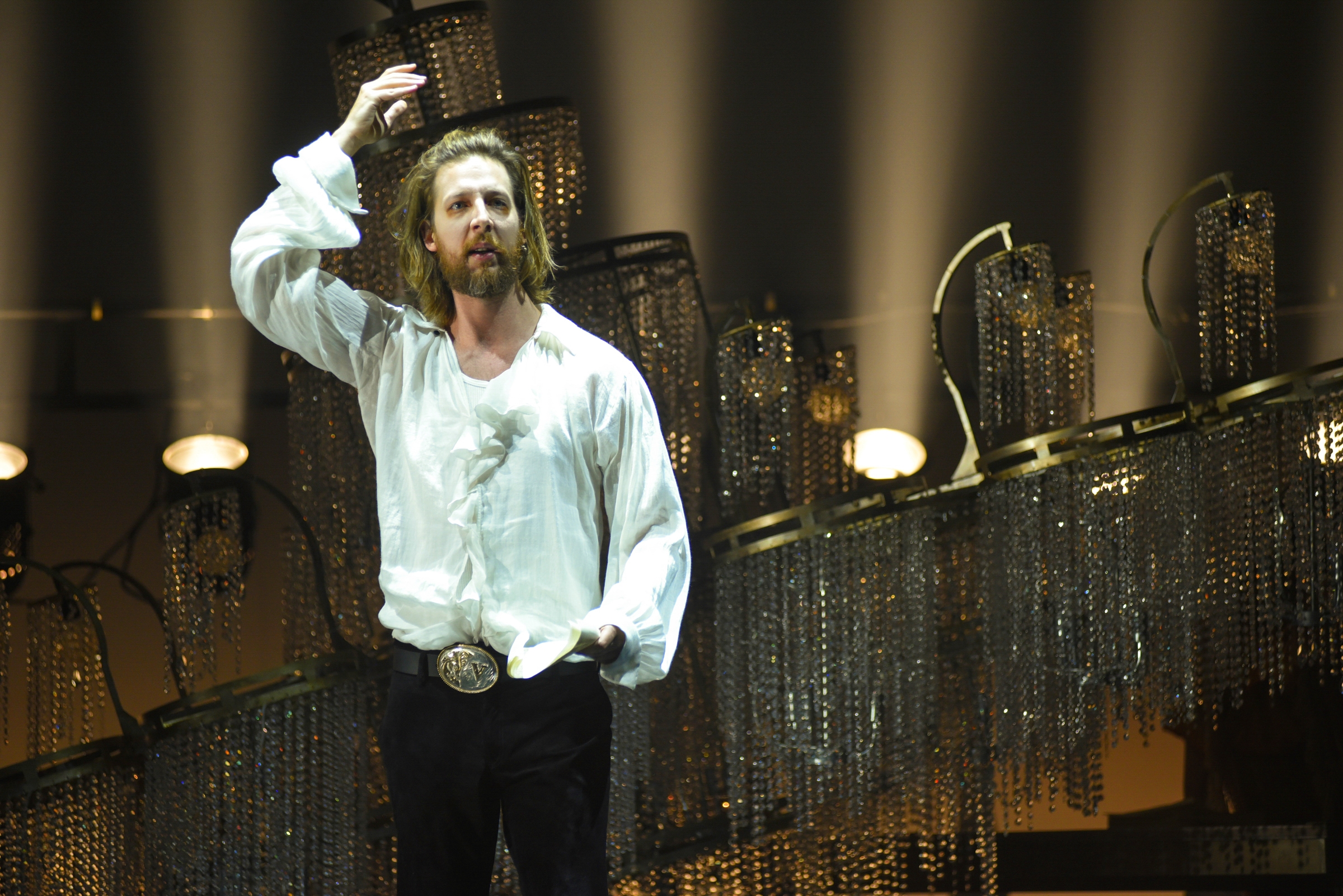
Emmanuel Schwartz as Voltaire. Photo: Yves Renaud.
Pronouncing on the best of all possible adaptations of Voltaire’s Candide (Leonard Bernstein’s operetta has a better claim than most) might well be as futile as Dr. Pangloss’s characterization of our earthly abbatoir as the best of all possible worlds. But this version from playwright Pierre Yves Lemieux and director Alice Ronford, working together for the first time since their TNM production of Tristan et Yseult in 2003, must be one of the most ambitious. It’s a freewheeling play-within-a-play, gorgeously lit and designed (with an all-purpose glittering chandelier dominating), and propelled by a running thesis on 18th century thought and how it speaks to our times. Among the parallel references are racism, religious freedoms and accommodations, even the fate of the Québécois francophones in the wake of Anglo conquest.
Lemieux achieves all this by framing the picaresque adventures of Voltaire’s fresh faced gadabout as a rehearsal taking place at the Enlightenment author’s Ferney estate, where he has retreated from the very real danger of officialdom’s disapproval over his freethinking ways. Friends and actors have gathered to help him hone his newly minted classic, mostly by acting out scenes, but also by analyzing what they’re all about.
If this last element makes it seem as though Lemieux has made heavy weather of Voltaire’s slim volume – well, there’s something in that. Part of the cruel magic of Candide is the brevity with which it whisks its hero and his companions (mentor Dr. Pangloss, paramour Cunégonde, servant Cacambo, etc.) from one horror to another, most famously the Lisbon earthquake and the Portugese Inquisition. But Voltaire and his companions mitigate this effect by launching into philosophical debates and disputations over what each incident might mean, a bit like an animated Brody’s Notes or a commentary on a DVD.
Luckily, Lemieux’s script handles the philosophizing with quick wit and amusing bursts of bathos, and there’s lively interplay between Emmanuel Schwartz’s Voltaire and the actor chums he’s gathered for the weekend. Benoît Drouin-Germain provides a fresh-faced Candide, Patrice Coquereau is a suitably self-satisfied Pangloss, Larissa Corriveau is sassy and self-possessed as Cunégonde and Valérie Blais skillfully hops between various characters, including the uni-buttocked old servant who was once one of the most sought-after beauties in Europe, and a glittering king of El Dorado spookily provided with a voice-modifying microphone.
Schwartz’s Voltaire arguably smacks more of a brooding, Byron-esque Romantic than the author’s familiar image as a sardonic, good-humoured gadfly. It’s an all-throttles-firing performance, especially in the closing moments when he’s shaken to the core by the discrepancy between, on the one hand, humanity’s modest hopes for happiness in work and a well-tended garden, and, on the other, the unrelenting onslaught of suffering and atrocity. But it’s a portrayal that’s not a million miles away from the mannerisms of the 18th century Comédie Français (all statuesque poses and outsize wigs) that Voltaire ridicules, and, in one colourful scene, which Coquereau sends up so amusingly.
Playing at Théâtre du Nouveau Monde, Sept. 11 to Oct. 6, 2018
